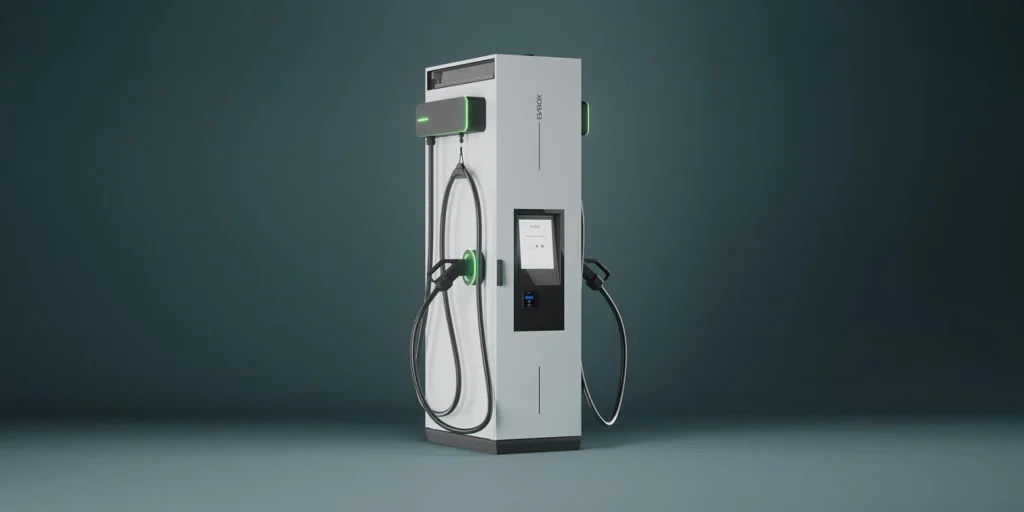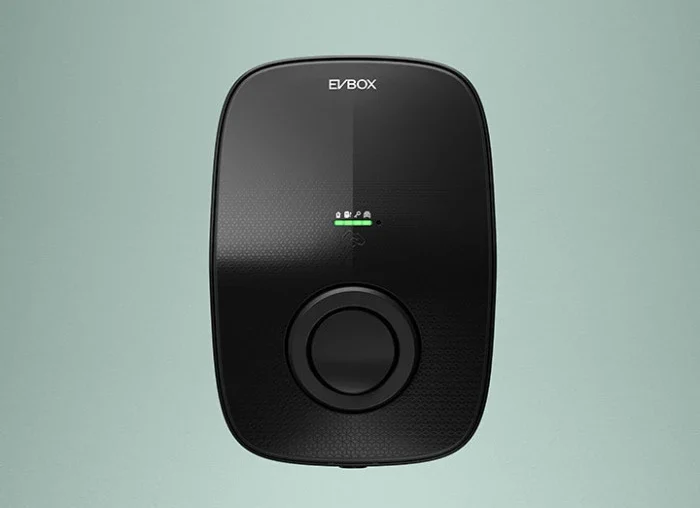EcoCharge Solutions
About LEE'S
charging Solutions
Empower Your Business, Charge the Future.
EV charging Products for homes & businesses
Power up your home or business with EV charging stations from Lee’s Charger. Our solutions offer convenient and reliable charging for electric vehicles, empowering individuals and businesses to embrace sustainable transportation practices with ease.

EVBox BusinessLine
Our best-selling charging station for business locations
7.4 kW / 11 kW / 22 kW
Workplaces / Retail & hospitality / Commercial parking / Fleets

EVBox Troniq Modular
The powerful charging station that grows with your business
90 kW to 240 kW
Retail and hospitality / Parking management / Gas stations
Home charging (AC)
Charging solutions for homes
Elevate your home with Lee’s Charger charging solutions, designed for seamless integration into your lifestyle. With user-friendly installation and intuitive operation, charging your electric vehicle at home has never been easier. Enjoy the convenience of reliable charging right at your fingertips, empowering you to embrace electric mobility with confidence.
- Easy installation for hassle-free setup.
- Intuitive operation for effortless charging.
- Reliable performance ensures your vehicle is always ready.
- Seamless integration into your home environment for a sleek and modern look.
Powering Your Business Towards Sustainability
EV charging
stations for businesses
Enhance your business’s sustainability efforts with EV charging stations from Lee’s Charger Company. Our customizable charging solutions are designed to meet the needs of businesses large and small, providing a convenient amenity for employees, customers, and visitors alike. With our reliable charging infrastructure, you can demonstrate your commitment to environmental responsibility while attracting eco-conscious clientele.
From installation to ongoing maintenance, we handle every aspect of implementing EV charging stations for your business, ensuring a seamless experience for you and your users. Join the green revolution with Lee’s Charge today!
Organization history and mission
Lee’s Charger Company, founded in 2023, is a startup driven by a passion for the environment and a commitment to promoting sustainable transportation solutions. With a strong focus on educating the youth about EV technology, we aim to create a greener future by providing convenient and accessible EV charging solutions.
Building a Sustainable Future
Lee's Charger Company is dedicated to constructing a nationwide network of EV charging stations, fostering convenient access for electric vehicle owners and promoting environmental stewardship.
Accelerating Green Transportation
Our widespread charging infrastructure aims to expedite the transition to eco-friendly transportation, reducing carbon emissions and creating a healthier planet for future generations.
Educating Tomorrow's Leaders
Beyond charging solutions, we prioritize youth education on the benefits of EV technology, instilling a sense of environmental responsibility to drive long-term adoption and sustainability.
We've saved clients over $100 million on their projects
Why Choose Lee's Charger
Choose Lee’s Charger for reliable, convenient, and sustainable charging solutions. With our commitment to excellence and dedication to environmental stewardship, we empower you to drive towards a greener future with confidence.
Reliability
Our charging stations are built to last, ensuring a dependable power source for your electric vehicle whenever you need it.
Convenience
With strategically located charging stations, you can easily access our network wherever you go, making charging your EV a breeze.
Sustainability
Lee's Charger is dedicated to promoting sustainable transportation solutions and reducing carbon emissions.
Innovation
Stay ahead of the curve with Lee's Charger. We're constantly innovating to bring you the latest advancements in EV charging technology.
Customer Service
Our friendly and knowledgeable team is here to support you every step of the way, providing exceptional service and personalized assistance.
Accessibility
With strategically located charging stations, we make it easy for you to charge your electric vehicle wherever you go, offering convenience and flexibility .
our customer reviews
Discover what our customers have to say about Lee’s Charger Company. With glowing reviews highlighting our seamless charging experience and exceptional service, join the many satisfied users powering their journeys with us.




Frequently asked questions
Explore our comprehensive FAQ section for answers to commonly asked questions. From charging procedures to technical queries, find the information you need to make the most of your EV charging experience.
There are two main types of chargers for electric vehicles, AC (alternating current), and DC (direct current) chargers. The main difference between the two is whether the conversion of AC power from the grid to DC power needed for charging an EV’s battery happens inside or outside the vehicle.
AC charging stations are the most common type of chargers. When charging with an AC charger, the AC to DC conversion happens inside the vehicle’s onboard converter. Given the limited space inside a vehicle, the size of the onboard converter is also limited. This means the maximum charging capacity an onboard converter can deliver is between 1.4 kW and 43 kW. EVBox offers three different AC charging stations: EVBox Elvi, EVBox Livo, and EVBox BusinessLine.
DC chargers convert AC power into DC power outside of the vehicle within the charging station. By moving the conversion outside of the vehicle, DC chargers can charge much faster, up to 350 kW. EVBox offers two different DC fast chargers: EVBox Troniq Modular, and EVBox Troniq High Power.
Power from the electricity grid is alternating current (AC) by nature. The electric power of a battery is direct current (DC) by nature. Therefore, to charge an electric vehicle from the grid, power must be converted from AC to DC.
When plugging an electric vehicle into an AC charging station, power from the grid is fed to the car via the vehicle inlet using the charging cable and connector. The onboard AC/DC converter converts AC power to DC power, suitable for charging the battery.
Due to the limited space inside a vehicle, the onboard charger is limited in size and weight. Therefore, onboard chargers typically have a power ranging between 1.9 kW – 43 kW.
To increase the charging power further, the AC/DC converter must be moved outside the vehicle and placed in an off-board charger. This is known as DC charging. DC power is directly fed to the car via a DC charging inlet. With no size or weight restrictions, the off-board charger can typically deliver up to 350 kW.
Just like electrical outlets, charging stations have different plugs and sockets depending on the vehicle brand and the country where you’re charging. Luckily though, most countries follow the below standards:
AC charging standards
For American and most Asian vehicles, Type 1 plugs are standard. These single-phase plugs can deliver up to 7.4 kW of power.
For European vehicles, Type 2 plugs are standard. These triple-phase plugs can deliver up to 22 kW for private charging, and up to 43 kW for public charging.
One exception is Tesla. In the US, all Tesla models have a specific type of socket. In Europe, all Tesla models have a Type 2 socket.
DC charging standards
The Combined Charging System or CCS plug is standard for European (CCS2) and North American (CCS1) car manufacturers. Supporting both AC and DC charging, it can deliver up to 350 kW of power.
Developed in Japan, the CHAdeMO charging plug enables high-power charging of up to 100 kW as well as bidirectional charging. At the moment, Asia is leading the way in manufacturing EVs compatible with CHAdeMO plugs. You may also find CHAdeMo plugs in Europe, however, they are slowly being phased out since 2018 as the technology is not fully ready.
GB/T is the Chinese standard for electric vehicle battery charging. Currently, GB/T plugs deliver up to 237.5 kW, however, China is developing a new version that could offer up to 900 kW.
Note: If your charging station has a fixed cable, you need to make sure the attached cable fits into your vehicle’s socket. For example, if you’re in Europe but drive an Asian Nissan LEAF, you’d need a cable that connects the Type 2 plug of the charging station with the Type 1 outlet of your vehicle.
All EVBox chargers are compatible with every electric vehicle with the standard Type 1 (SAE J1772) or Type 2 (IEC) connectors. As these connectors are the standard in most countries, you can confidently use EVBox chargers to power up your EV.
EVBox fast chargers are available with CCS and CHAdeMO connectors as standard ensuring they work with most EVs on the market.
Residential EV chargers are compact, built to blend in with the environment and provide a smooth charging experience for private users.
Commercial EV chargers are designed with durability in mind. They are weatherproof, shockproof, and can withstand 24/7 continuous charging. They also have load balancing capabilities to ensure multiple chargers can work together at any commercial location. Plus, with EV roaming, many EV drivers can charge at your charging stations, no matter if they’re using third-party cards and apps.
The cost to install an EV charger depends on the station you choose and the civil infrastructure at the location itself. Residential chargers are the least expensive to buy and install. Whereas commercial and fast chargers are more expensive.
In terms of installation costs, EV chargers are installed by certified electricians who charge usually charge an hourly or fixed rate. On top of this, you also need to consider the costs of installing heavy-duty electrical outlets, possible grid upgrades, optional wall mounts, and wiring, depending on the location of your chargers. In general, residential installations are the least expensive, whereas commercial installations are more expensive.
The time it takes to charge an EV depends on the size of the EV’s battery and the speed of the EV charger.
Fast chargers are the quickest way to charge an EV. In just 15 minutes to one hour, a 50 kW – 350 kW DC fast charger can deliver between 200 km – 500 km of range.
Residential or commercial AC charging stations between 7 kW – 22 kW take around four to eight hours to charge an EV from empty to full. However, instead of waiting until their battery is empty to charge, many EV drivers charge wherever they park. Known as the top-up model, this makes AC chargers a practical choice for businesses and drivers alike.


